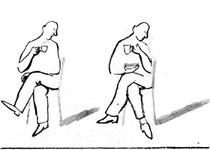- Dla kandydatów
- Dla studentów
- Informacje dla studentów I roku
- Informacje ogólne
- Informator o studiach
- Organizacja roku
- Kolokwia i egzaminy
- Prace i egzaminy dyplomowe
- Materiały dydaktyczne
- Pracownie
- Pracownia Projektów Studenckich
- Zespołowe projekty studenckie
- Oprogramowanie
- Konta i hasła w sieci studenckiej
- Studia doktoranckie
- Studia podyplomowe
- Samorząd, koła, kluby, chór
- Stypendia i sprawy socjalne
- Oferty pracy
- Dla pracowników
- Dla gości
- Badania
- Rada Naukowa Dyscypliny Nauki Fizyczne
- Kierunki badań
- Priorytetowy Obszar Badawczy II IDUB
- Realizowane projekty
- Sekcja ds. Obsługi Badań
- Seminaria i konwersatoria
- Konwersatorium im.J.Pniewskiego i L.Infelda
- The Algebra & Geometry of Modern Physics
- Algebry operatorów i ich zastosowania w fizyce
- Środowiskowe Seminarium Fizyki Atmosfery
- Seminarium Zakładu Biofizyki
- Seminarium biofizyki oraz projektowania molekularnego i bioinformatyki
- Seminarium z fizyki biologicznej i bioinformatyki
- Seminarium Fizyki Ciała Stałego
- Multimedialne seminarium z ekono- i socjofizyki
- Exact Results in Quantum Theory & Gravity
- Seminarium Fotoniki
- Seminarium Zakładu Fotoniki
- Seminarium "High Energy, Cosmology and Astro-particle physics (HECA)"
- Środowiskowe Seminarium z Informacji i Technologii Kwantowych
- Seminarium Fizyki Jądra Atomowego
- Seminarium fizyki litosfery i planetologii
- Seminarium Fizyki Materii Skondensowanej
- Seminarium "Modeling of Complex Systems"
- Seminarium nauk o widzeniu
- Seminarium "Nieliniowość i Geometria"
- Seminarium Optyczne
Soft Matter and Complex Systems Seminar
- String Theory Journal Club
- Seminarium Koła Struktur Matematycznych Fizyki
- Seminarium "Teoria cząstek elementarnych i kosmologia"
- Seminarium KMMF "Teoria Dwoistości"
- Seminarium "Teoria i Modelowanie Nanostruktur"
- Seminarium Teorii Względności i Grawitacji
- Seminarium "The Trans-Carpathian Seminar on Geometry & Physics"
- Seminarium Fizyki Wielkich Energii
- Seminarium Wirtualne GQFI-WST
- Konferencje
- Publikacje
- Research Highlights
- Optyka na Uniwersytecie Warszawskim
- Wydział
- Misja i strategia
- Władze Wydziału
- Zarządzenia Dziekana
- Zarządzenia Prodziekana ds. studenckich
- Struktura organizacyjna
- Historia Wydziału
- 90 lat Wydziału Fizyki
- 100 lat Wydziału Fizyki
- Fizykoteka – Wirtualne Muzeum Wydziału Fizyki UW
- Dziekanat
- Rada Wydziału
- Jakość kształcenia
- Stopnie i tytuły naukowe
- Nagrody Wydziału Fizyki
- Biblioteki
- Ośrodek Komputerowy
- Pracownicy i doktoranci
- Zamówienia publiczne
- Rezerwacja i wynajem sal
- Oferty pracy
- Osoby
- Zapraszamy
- Media
Soft Matter and Complex Systems Seminar
2006/2007 | 2007/2008 | 2008/2009 | 2009/2010 | 2010/2011 | 2011/2012 | 2012/2013 | 2013/2014 | 2014/2015 | 2015/2016 | 2016/2017 | 2017/2018 | 2018/2019 | 2019/2020 | 2020/2021 | 2021/2022 | 2022/2023 | 2023/2024
2021-10-29 (Piątek)
Robert J. Budzyński (FUW)
Running the Vicsek Model on a Home PC
I present an interactive simulation of the Vicsek model of active matter, with real time visualization, capable of handling several hundred thousand interacting objects at a reasonable rate, on a consumer grade PC and without requiring any uncommon software. The computational load is handled mostly by the GPU and programmed with WebGL. Some details of optimising the simulation of large collections of objects with short range interactions are discussed.
2021-10-22 (Piątek)
Michał Bogdan (Institute of Physical Chemistry, PAS)
Stochastic jetting and dripping in confined soft granular flows
We report new dynamical modes in confined soft granular flows, such as stochastic jetting and dripping, with no counterpart in continuum viscous fluids. The new modes emerge from an avalanche-like dynamics of a close-packed monodisperse emulsion entering a narrow orifice. We observe formation of remarkably stable single-file granular jets which occasionally break resulting in non-Gaussian distribution of cluster sizes. We find that the sequences of droplet rearrangements that lead to the formation of such chains resemble unfolding of cancer cell clusters in narrow capillaries, overall demonstrating that the microfluidic emulsion systems could serve to model certain aspects of tissue dynamics.
2021-10-15 (Piątek)
Daniel Albuquerque (IGF UW)
Liquid-ice mass partitioning in an idealized mixed-phase cloud parcel
Several micro-physical processes determine phase partitioning between ice and liquid water in a mixed-phase cloud. Here we investigate the collective growth of ice particles and liquid droplets affected by turbulent fluctuations in temperature and water vapor fields. All cloud particles, including inactivated nuclei (both CCN and IN), are described by Lagrangian super-particles. To account for local variability in the turbulent cloud environment we apply a Lagrangian micro-physical scheme, where temperature and vapor mixing ratio are stochastic attributes attached to each super-particle. In addition, a simple linear relaxation scheme models turbulent mixing of the scalar fields probed by each super-particle. The limit of a locally homogeneous supersaturation field corresponds to an infinitely short turbulent mixing timescale. The impact of our Lagrangian micro-physical scheme on phase partitioning is tested in adiabatic cloud parcel simulations. Results are confronted with idealized reference simulations that use bulk micro-physics based on an assumed (temperature-dependent) phase partitioning function. Our study suggests that accounting for local variability in a turbulent cloud is important for reproducing steady-state mixed-phase conditions.
2021-10-08 (Piątek)
Panagiotis Theodorakis (Institute of Physics, Polish Academy of Sciences)
Nanodroplets and Nanobubbles on Solid Substrates: Molecular Dynamics Simulation of Interfacial Phenomena
Nanodroplets and nanobubbles at the interface with solid substrates can lead to impressive phenomena, which are relevant for a wide range of applications, such as coating and transport in nanofluidic devices. In our meeting, we will discuss on the fast and complete spreading of surfactant-laden aqueous droplets on hydrophobic substrates (superspreading), the durotaxis motion of droplets, and the intriguing stability of surface nanobubbles. Understanding these phenomena goes beyond the capabilities of experiment and continuum simulation, since their mechanisms require access to the molecular-level detail of the studied systems, which molecular dynamics simulation can provide.
Stron 3 z 3







